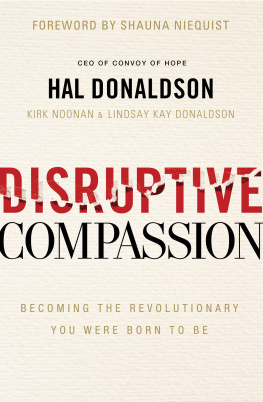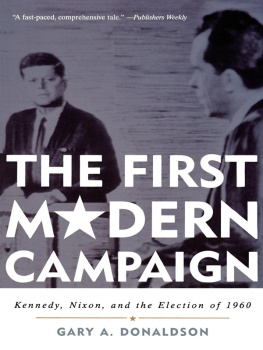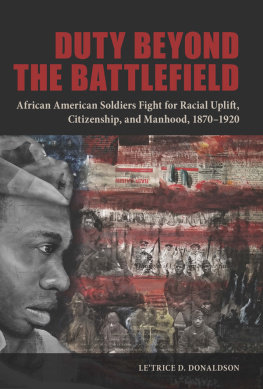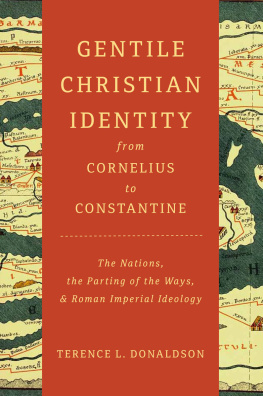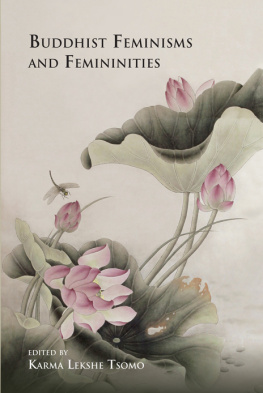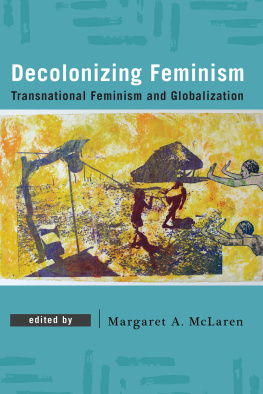Decolonizing Feminisms
1992 The University of North Carolina Press All rights reserved Manufactured in the United States of America
96 95 94 93 91
5 4 3 1
Library of Congress Cataloging-in-Publication Data Donaldson, Laura E.
Decolonizing feminisms: race, gender, and empire-building / Laura E.
Donaldson.
p. cm.
Includes bibliographical references and index.
ISBN 0-8078-2044-x (cloth : alk. paper). ISBN 0-8078-4382-2 (pbk. : alk. paper)
1. American literatureHistory and criticismTheory, etc. 2. English literatureHistory and criticism Theory, etc. 3. Feminism and literature United States. 4. Feminism and literatureGreat Britain.
5. Imperialism in literature. 6. Colonies in literature. 7. Sex role in literature. 8. Women in literature. 9. Race in literature. I. Title.
PS152.D58 1992
810.90082dc2o 92-54167
CIP
The paper in this book meets the guidelines for permanence and durability of the Committee on Production Guidelines for Book Longevity of the Council on Library Resources.
originally appeared in somewhat different form in Diacritics 18 (1988): 65-77.
originally appeared in somewhat different form in Cinema Journal 29 (1990): 5368 under the title, The King and I in Uncle Toms Cabin, or on the Borders of the Womens Room.
originally appeared in somewhat different form in Cultural Critique 11 (198889): 522.
THIS BOOK WAS DIGITALLY MANUFACTURED.
Contents
One
The Miranda Complex: Colonialism and the Question of Feminist Reading
Two
The King and I in Uncle Toms Cabin; or, On the Borders of the Womens Room: Race, Gender, and Sexual Difference
Three
The Con of the Text: Textualism, Contextualism, and Anticolonialist Feminist Theories
Four
Of Piccaninnies and Peter Pan: The Problem of Discourse in a Marxist Never-Never Land
Five
A Passage to India: Colonialism and Filmic Representation
Six
Rereading Moses/Rewriting Exodus: The Postcolonial Imagination of Zora Neale Hurston
Seven
(ex)Changing (wo)Man: Toward a Materialist-Feminist Semiotics
Postscript
On Womens Experience,
Acknowledgments
I would like to thank the American Council of Learned Societies, whose research fellowship generously supported much of this project, and the Center for the Study of Women at the University of California, Los Angeles, where and for being an inspiring role model even when she was not aware of it; Sandra Eisdorfer, for being a good friend as well as a superb editor; Elizabeth Meese and Susan Lanser, for extremely insightful, rigorous, and constructive readings of the whole text and for setting the standard in the conduct of feminist dialogue.
Finally, as usual in extended projects such as a book, families make an extraordinary contributionemotionally, intellectually, and patiently. Mine is no different. Although it hardly seems adequate, I would like to express deepest gratitude to my husband, my parents, and those long-suffering four-legged saints, Hilda and Portia.
In short, the type of literary criticism suitable to the philosophy of praxis must fuse the struggle for a new culture and criticism of social life, feelings and conceptions of the world with aesthetic or purely artistic criticism, and it must do so with heat and passion.
-Antonio Gramsci, Problems of Criticism
What Semiology must attack is not only, as in the days of Mythologies, the petit-bourgeois good conscience, but the symbolic and semantic system of our entire civilization; it is not enough to seek to change contents, we must above all aim at fissuring the meaning-system itself: we must emerge from the Occidental enclosure.
-Roland Barthes, The Semiotic Challenge
Introduction
Scene 1: A workshop focusing on the problem of women and power in literature. One of the presenters (a white woman) persuasively details the emergence of a postfeminist consciousness in contemporary womens writing. A black woman on the panel challenges her analysis by arguing that such a characterization presupposes white feminism as the standard for all womens writing. For many African American women writers, she declares, feminism is only now blooming into full flower.
Scene 2: A conversation among an ethnically diverse group of colleagues in a university-based Womens Studies program. During this informal discussion, an African American woman announces to the group that white women are not oppressed because they can marry white men.
Each of the scenes described above exhibits a misprisiona cultural and psychological misrecognition that I identify as the Miranda Complexthat threatens the continued viability of feminism as a revolutionary movement. Loosely taken from the interaction between Miranda and Caliban in Shakespeares The Tempest, the Miranda Complex raises in a profoundly acute way the questions of sex and race and how feminists read, or fail to read, their imbrication in theorizing womens lives. Scene 1 vividly illustrates how a predominantly white, middle-class feminism exhibits not an overt racism that conjures active dominance and enforced segregation but a more subtle white solipsism that passively colludes with a racist culture. Pasolinis startling analogy between the brutal physical violence of an executioner and the epistemic violence of writing could also characterize the potential for violence within feminist criticisms denial of the diverse experiences and genders of the global community of women.
However, scene 2 is as monolithic in its own way as scene 1, since its heterosexism and lack of adequate class analysis lead the speaker to meld all white women together into undifferentiated economic and sexual categories and to ignore the social stratifications that divide white women from each other as well as from women of color. Such a homogenous stance also fails to perceive how women who enjoy the privileges accorded to middle-class whiteness can simultaneously experience sexual oppression. Marrying a white man with money does not necessarily mean freedom, since continued access to his economic and racial power depends upon a womans acquiescence to a relationship that traditionally has inscribed her into the sexual hierarchies of patriarchy. In the final analysis, neither the participant in scene 1 nor in scene 2 acknowledges the complexity of womens material experience, and each exhibits a failure that stems from a too unitary and noncontradictory conception of gender.
Apropos of this shortcoming, the thread uniting the various essays and texts of this collection is my attempt to understand gender as a braid of complexly woven relationships and to formulate methods of feminist reading that are adequate to the task of analyzing its myriad strands. Further, if feminism affirms an inseparable connection between theory and praxis, then the notion of gender as a heterogenous ensemble calls for a similar heterogeneity of critical methods in analyzing its mobile and tensive relationships. Just as the title to this book pluralizes feminism, I pluralize method in the preceding sentence because, as Donna Przybylowicz notes in her essay Toward a Feminist Cultural Criticism: Hegemony and Modes of Social Division:
A particularly fruitful and oppositional feminist cultural theory would be one that uses various methodologies but that also takes a symptomatic stance towards its own discourse. Employing poststructuralist, psychoanalytic, and contemporary Marxist analyses in order to study, contest, and dismantle patriarchal structures, it does not internalize and identify with nor uncritically and exclusively use these approaches. Rather, in critiquing as well as engaging with them in the process of transforming the asymmetrical forms of power based on gender/race/class exploitation, it perceives meaning as contradictory and dialectical and society as the product of a divisive and dialogical process.




